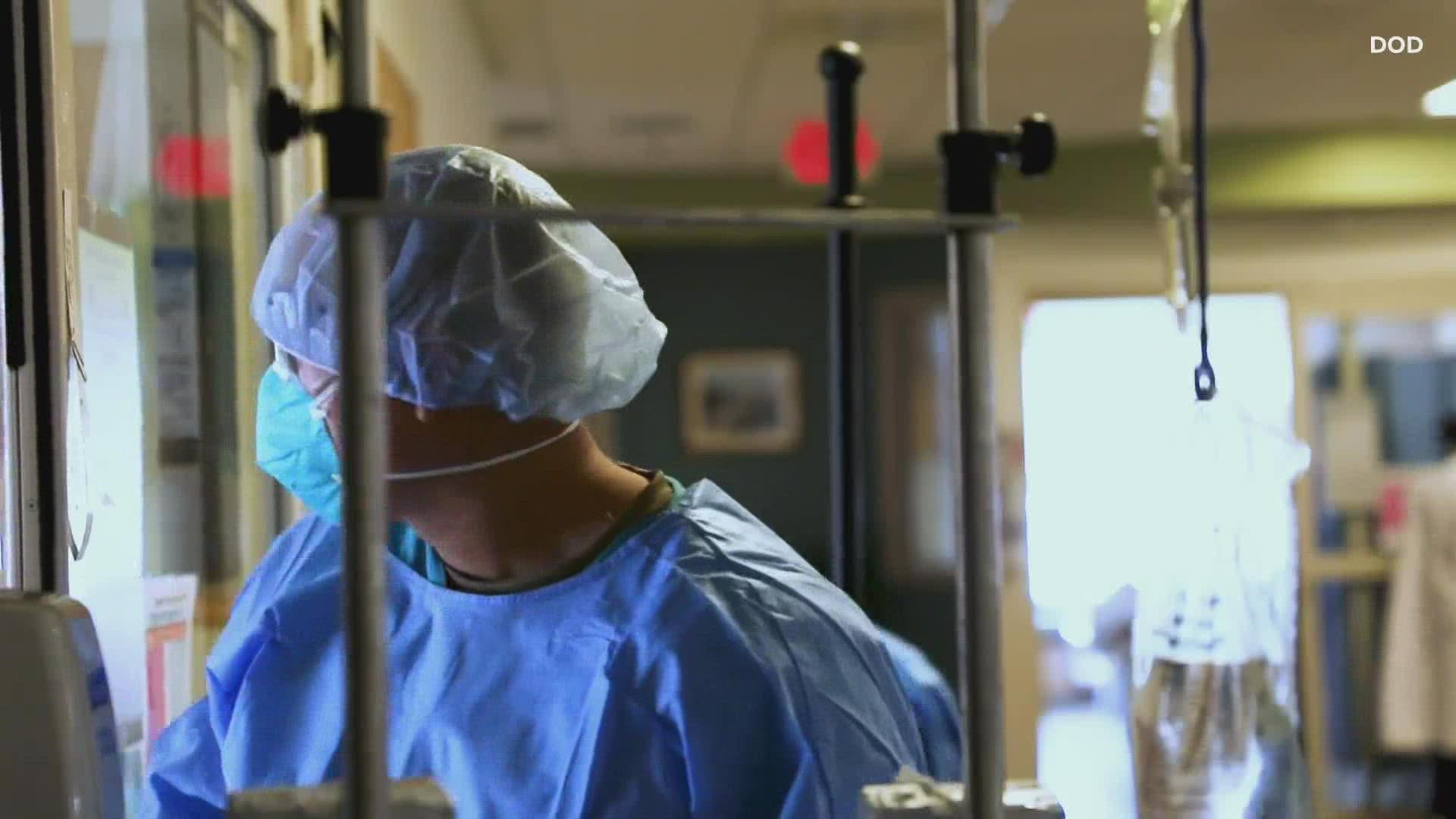MAINE, USA — Maine's public health leaders announced changes to the state's COVID pandemic response on Wednesday.
Maine CDC ending contract tracing
Director Dr. Nirav Shah said that the Maine Center for Disease Control and Prevention will end its contact tracing program for the general public.
He said this change is not related to the state's backlog of case reviews of positive test results, which Shah said had grown to more than 58,000.
Shah said, overall, the number of people testing positive each day is decreasing week over week. The Maine CDC received 1,665 positive lab results every day in the last seven days. During the prior seven-day period, the agency was receiving 2,500 a day.
Shah said that case review and contact tracing are two parallel but separate processes. Contact tracing is meant to identify who is sick and try to prevent them from spreading the virus or anyone they've been in close contact with.
Shah said the omicron variant is infecting so many people at such a fast pace that contact tracing is usually too far behind before someone has infected another person.
"Contact tracing is a race. It's a race between public health and the virus. Who is going to reach people first, us or the virus?" Shah asked. "The virus that we all first knew about in 2020 has changed. It now has a jet pack on its back. It can be halfway around the track [before] public health even gets its shoes on."
Shah said people who have not received a booster dose of the COVID vaccine should still quarantine for at least five days after testing positive.
Pfizer's vaccine for kids under five
The federal health agency is reviewing the data. Public health leaders said that age group could become eligible as soon as March.
However, more kids in Maine are catching the virus now than ever before in the pandemic. Since November 2021, each month has produced more cases than the prior. The latest data from the Maine CDC shows cases in kids through Jan. 24, and there are more cases in Maine in kids under 5 than in all of December.
"Others may be vaccinated in a child's life, but that doesn't mean a child won't be infected. The safest route to take is to get a child vaccinated," Shah said, referencing the milder symptoms and Maine's high rate of adults vaccinated.
Dr. James Jarvis from Northern Light Health said kids can still end up with "long COVID" symptoms, including trouble focusing or concentrating.
"At their prime of them learning and developing their skill sets, we do not want them to have any detriment to their cognitive ability and ability to learn in an appropriate fashion," Jarvis said.
Jarvis also said being sick with COVID prevents a child from learning in person and forces parents to find childcare.
New access to COVID treatments
Northern Light Health is providing a new option for people who catch COVID to get treatment outside of the hospital.
Patients can now do self-referrals on Northern Light Health's website.
If someone tests positive on an at-home test and has mild to moderate symptoms, they can sign up for an appointment.
Northern Light Health is following state guidance on how to prioritize these treatments, meaning they will consider a person's age, vaccination status, immune status, and risk factors.
The hospital system is working with the state to be one of the centers that can distribute oral antiviral pills, as well as monoclonal antibodies.
But the only monoclonal antibody that treats omicron, sotrovimab, is in short supply nationwide.
"We should be getting enough medication in order to take care of anybody who is eligible and desires to be treated. As a healthcare provider, it is my first and foremost job to see to it that we provide the adequate health care for those who seek it," Jarvis said.
Jarvis and Shah said Maine does have a steady supply of remdesivir, which is used for patients in the hospital. Dr. Jarvis warns people that using sotrovimab as treatment after infection is not a substitute for getting a covid vaccination.

